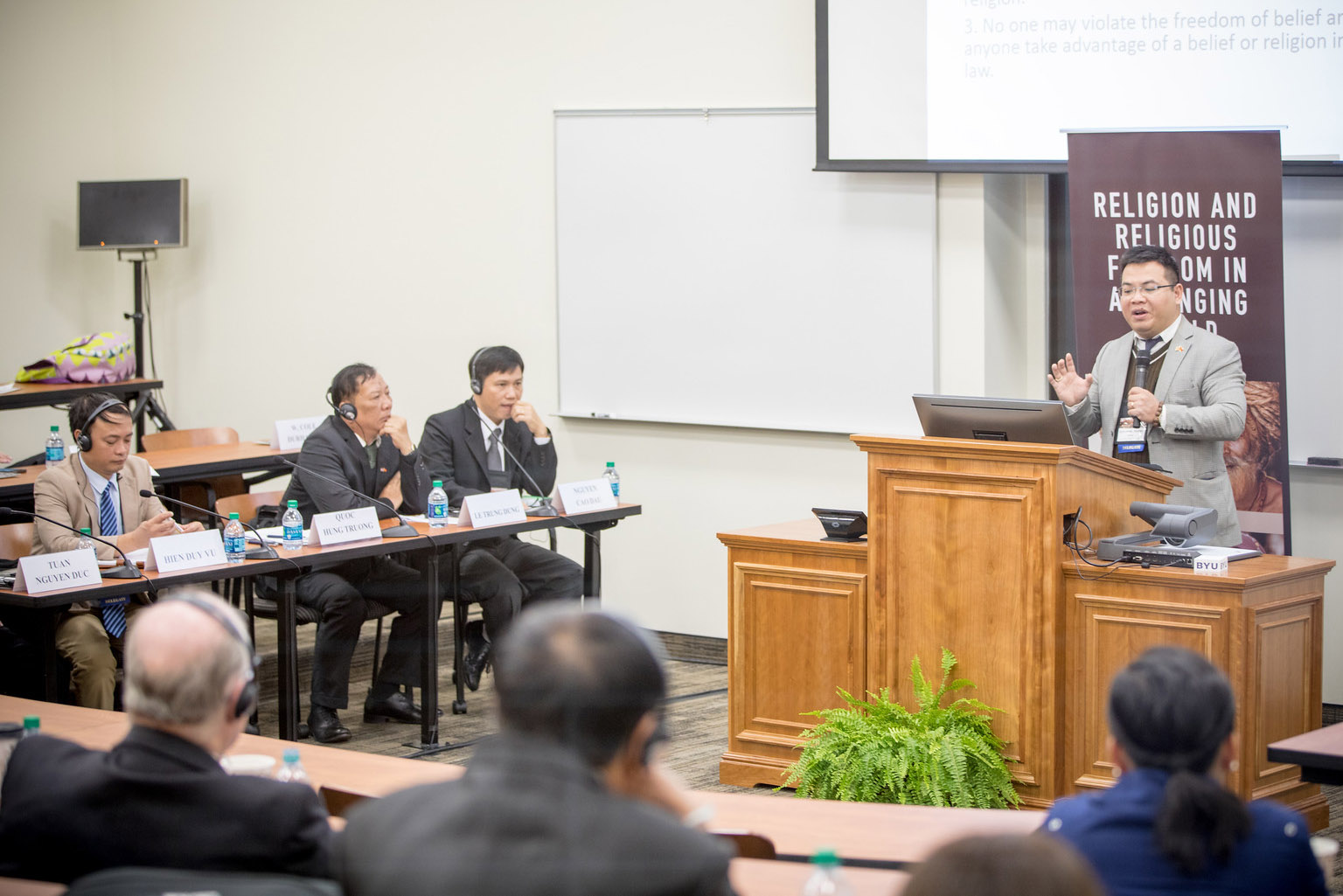Symposium 2017: Vietnam

by Thomas Palmer, BYU Law Student and Symposium Volunteer
Moderated by W. Cole Durham, Jr., Founding Director of the International Center for Law and Religion Studies, the Vietnam breakout session took place at 10:00 am on Tuesday, October 3, 2017. Panelists were Nguyen Cao Dau, Vice Director, Department of Humanitarian Affairs, Ministry of Public Security; Le Trung Dung, Deputy Department Head, Department of Public Security; Quoc Hung Truong, Director, Department for General and International Affairs, The Institute for Legislative Studies, The National Assembly of Vietnam; Tuan Duc Nguyen, Vice Chairman, Committee for Religious Affairs, Hanoi City; and Hien Duy Vu, Head of the Specialist Bureau, Committee for Religious Affairs, Hanoi City.
Truong Quoc Hung gave a brief summary of Vietnam’s 4000-year history and current demographics. Vietnam currently has a population of about 92 million people, and is comprised of 54 ethnicities, including 53 minorities. Vietnam is culturally and religiously diverse. The three most dominant religions are Buddhism, Taoism, and Confucianism. Alongside those older religions are the new religions of Catholicism, Protestantism, and Islam.
Truong Quoc Hung also gave a summary of religious freedom in Vietnam since it first gained its independence from France in 1945, to the endorsement of human rights in the 2003 constitution, to the enactment of a new law on religion in 2016. The International Center for Law and Religion at the BYU Law School helped the Vietnamese legislature to draft the new law. The new law on religion was originally criticized for being oppressive, but after revising the law it became a widely accepted law with 85% of votes in favor. The new law made it easier for new religions to receive recognition in Vietnam and for religious believers to gather together.
Le Trung Dung outlined the current state of law and religion in Vietnam and explained that the Vietnamese government has been consistent to guarantee freedom of religion to all. They guarantee equality without discrimination. Religion is good for people and essential in building a united community. Every year there are about 8500 religious ceremonies organized at the national level.